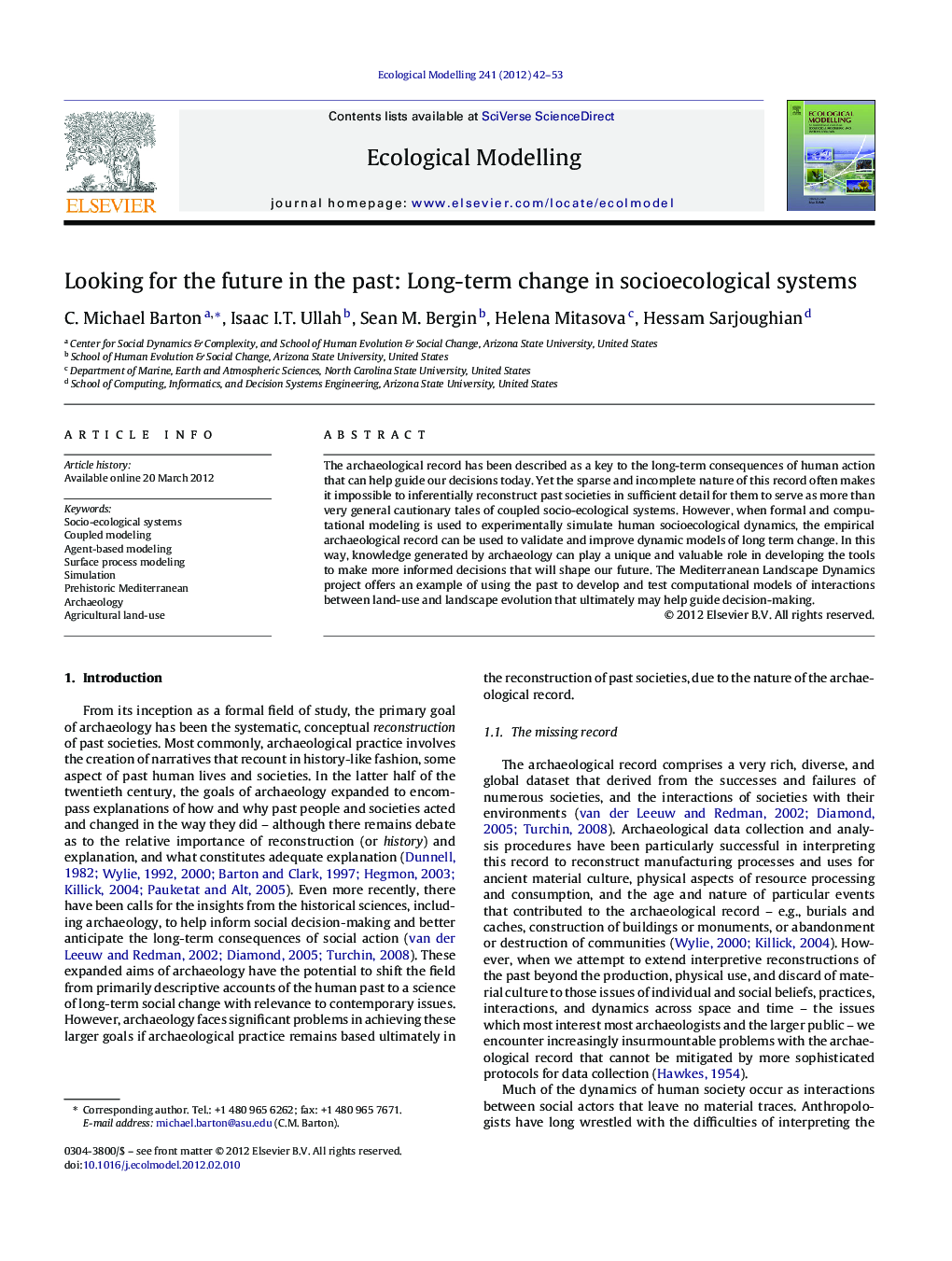| Article ID | Journal | Published Year | Pages | File Type |
|---|---|---|---|---|
| 4376429 | Ecological Modelling | 2012 | 12 Pages |
The archaeological record has been described as a key to the long-term consequences of human action that can help guide our decisions today. Yet the sparse and incomplete nature of this record often makes it impossible to inferentially reconstruct past societies in sufficient detail for them to serve as more than very general cautionary tales of coupled socio-ecological systems. However, when formal and computational modeling is used to experimentally simulate human socioecological dynamics, the empirical archaeological record can be used to validate and improve dynamic models of long term change. In this way, knowledge generated by archaeology can play a unique and valuable role in developing the tools to make more informed decisions that will shape our future. The Mediterranean Landscape Dynamics project offers an example of using the past to develop and test computational models of interactions between land-use and landscape evolution that ultimately may help guide decision-making.
Graphical abstractFigure optionsDownload full-size imageDownload as PowerPoint slideHighlights► Archaeology as long-term record of socio-ecological systems. ► Computational modeling for applying insights from the past to decision-making today. ► The Mediterranean Landscape Dynamics (MedLanD) project. ► Modeling laboratory for computational experiments in land-use/landscape interactions. ► Effects of community size and location, and land-use on Mediterranean landscapes.
